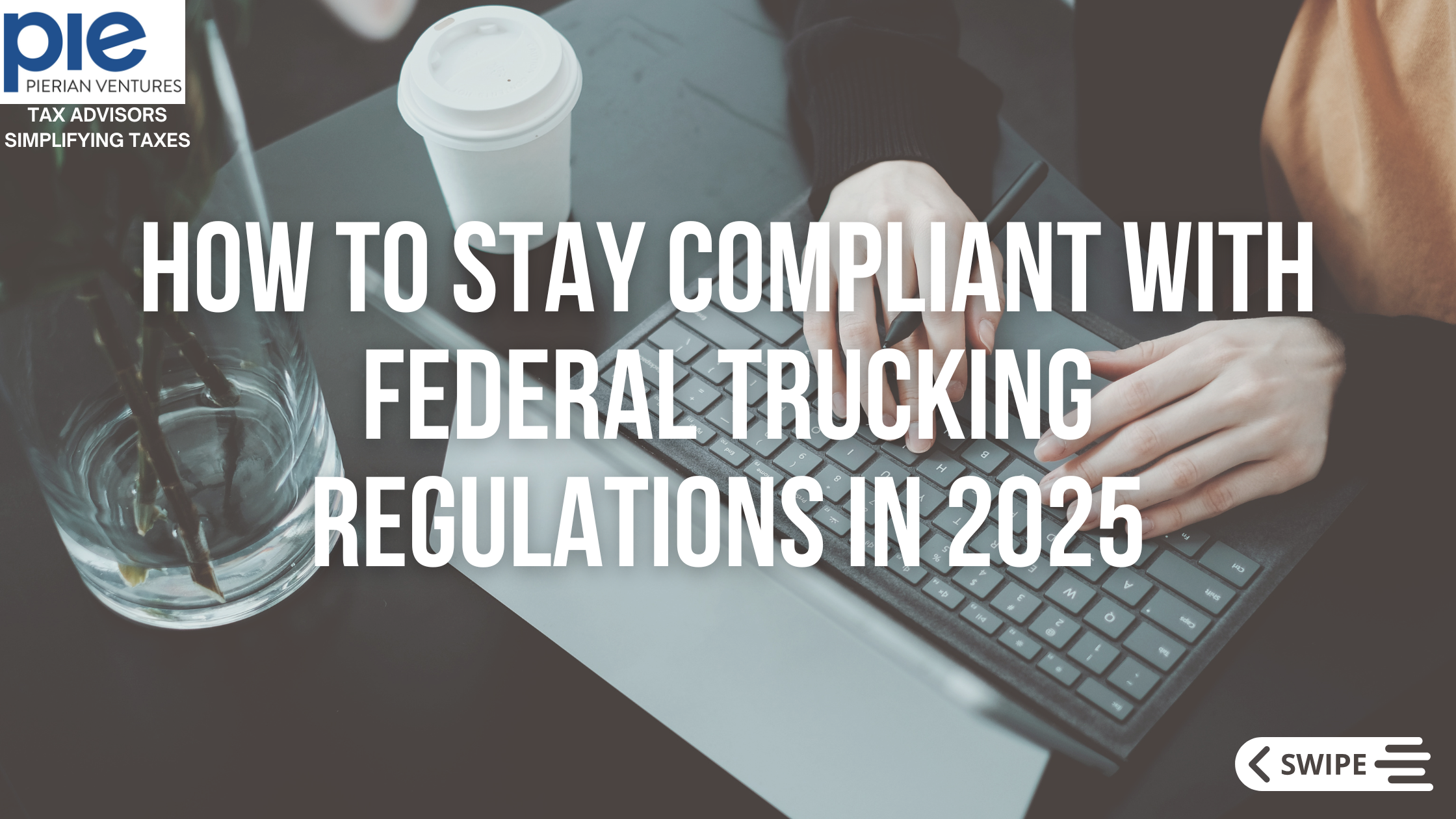Federal Trucking Regulations in 2025
As the U.S. trucking industry continues to grow in scale and complexity, compliance with federal regulations remains essential for maintaining operating authority and avoiding costly penalties. In 2025, several rule updates and enforcement methods are reshaping how transportation companies must approach safety, documentation, and regulatory filings.
For companies managing interstate freight or operating a fleet of commercial vehicles, compliance is not just a requirement—it is tied directly to business continuity, contract eligibility, and insurance access. This guide covers the core areas trucking businesses must monitor closely to stay fully compliant with federal requirements in 2025.
1. Maintain Active and Updated DOT & MC Authority
Trucking companies operating across state lines are required to register with the FMCSA and maintain an active USDOT Number, along with an MC Number if they provide for-hire transportation.These registrations require updates if there are changes to business name, ownership, fleet size, or operational scope.
The MCS-150 Biennial Update must be filed every two years—or sooner if key business details change. Failure to file this update may result in the deactivation of your DOT number, even if the business is still active.
2. Ensure Full Compliance with Hours-of-Service via ELDs
Commercial drivers must use Electronic Logging Devices (ELDs) to record their driving hours in accordance with Hours of Service (HOS) regulations. These records are used by FMCSA to detect violations, such as overdriving or insufficient rest periods.
In 2025, enforcement has become more data-driven. Inspection officers and auditors review ELD data alongside fuel tax reports and GPS tracking to verify accuracy. Discrepancies can lead to immediate citations or audits. Businesses should ensure that all devices are synchronized and that drivers are trained to use them correctly.
3. Follow Drug & Alcohol Testing Requirements
Commercial drivers must undergo pre-employment drug testing and be enrolled in a random testing program throughout their employment. Employers are also required to run annual queries through the FMCSA Drug & Alcohol Clearinghouse, a federal database that tracks violations and test results.
A failure to comply with this requirement can lead to fines and disqualification of drivers. Companies should retain detailed records of testing program participation, query history, and any corrective actions taken after violations.
4. Submit Federal Filings and Pay Required Taxes
Several filings are required on an annual or quarterly basis to remain in good standing with federal and state agencies:
- HVUT (Heavy Vehicle Use Tax – filed using IRS Form 2290) applies to commercial vehicles with a gross weight of 55,000 pounds or more.
- IFTA (International Fuel Tax Agreement) returns for fuel use across states
- Unified Carrier Registration (UCR) fees, which are determined by the number of commercial vehicles operated across state lines
- MCS-150 Biennial Update, as mentioned earlier
Late or inaccurate filings can result in audits, license suspensions, or financial penalties. It is important to keep accurate records of mileage, fuel usage, and fleet composition to support these filings.
5. Keep Inspection, Maintenance, and Repair Records Accessible
FMCSA rules require carriers to perform regular vehicle inspections, address maintenance issues promptly, and retain documentation for all repairs. Pre-trip and post-trip inspections must be conducted daily by drivers and logged properly.
Carriers must also conduct an annual inspection of each vehicle and retain documentation for at least 14 months. These records must be made available immediately during audits or roadside inspections. Poor documentation is treated as non-compliance even if the work was completed.
6. Monitor CSA Scores and Safety Ratings
The Compliance, Safety, Accountability (CSA) program is used by the FMCSA to monitor carriers across seven Behavior Analysis and Safety Improvement Categories (BASICs), such as unsafe driving and driver fitness.
Poor CSA scores can reduce a company’s chances of securing freight contracts, increase insurance premiums, and trigger FMCSA investigations. In 2025, many brokers and shippers will also use CSA data to decide whether to work with a carrier. Improving driver training, monitoring inspection outcomes, and responding to violations promptly can help maintain a strong safety rating.
7. Confirm All Drivers Are Qualified and Properly Documented
Before allowing any driver to operate a commercial motor vehicle, companies must confirm that the individual:
- Holds a valid Commercial Driver’s License (CDL)
- Has passed a medical exam by a certified medical examiner
- Is enrolled in a drug and alcohol testing program
- Has a clean record with the Drug & Alcohol Clearinghouse
Driver qualification files must include employment history, safety performance records, training logs, and copies of licenses and certifications. These files are reviewed during audits and must be updated regularly.
8. Align Business Structure with Federal and State Requirements
How a trucking business is structured—whether as a sole proprietorship, LLC, or corporation—can impact tax reporting, licensing, and regulatory responsibilities. Companies that operate under different legal entities or across multiple states must ensure that all operating authority, registrations, and tax filings are tied to the correct legal owner.
Errors in how a business is registered or how authority is assigned can create confusion during audits or delay payments from brokers and shippers.
How Pierian Ventures Can Support Your Compliance Strategy
At Pierian Ventures, we work with trucking and logistics companies to help ensure they meet all federal requirements while strengthening their overall business operations. Our team provides:
- Entity structuring and MC/DOT alignment
- Oversight of federal and state filing deadlines
- Integrated tax and regulatory planning
- Support for ELD setup and compliance readiness
- Strategic guidance to reduce operational risk
Our focus is not just to help you meet today’s requirements, but to position your business for stability and long-term growth in a heavily regulated sector.
Final Thoughts
Staying compliant with federal trucking regulations in 2025 is critical for protecting your operating authority, financial health, and professional reputation. Companies that treat compliance as a routine administrative task often face higher costs and unexpected setbacks. Those that approach it as a key part of their business planning are far more likely to succeed.
If you’re building or expanding a transportation business, now is the time to invest in your compliance systems, documents, and training. It’s not just about avoiding penalties—it’s about keeping your business moving without interruption.













